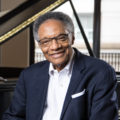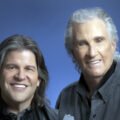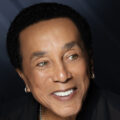Former Weather Girl Martha Wash is gonna make City Winery sweat with “Love & Conflict”
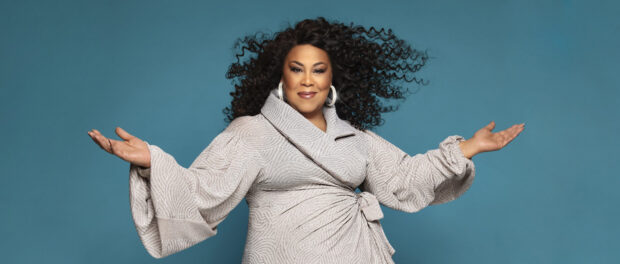 Photos provided by Martha Wash
Photos provided by Martha Wash
The mighty and marvelous voice of Martha Wash is known all the world over, starting with a supporting role for queer disco pioneer Sylvester in Two Tons O’ Fun, transitioning towards The Weather Girls and their iconic single “It’s Raining Men,” then becoming the premiere voice of the house music scene alongside C+C Music Factory, Black Box and Seduction.
Through she was sometimes subject to a lack of proper crediting, “The Queen Of Clubland” singlehandedly steered the entire course of music history with legislation in favor of artist’s rights, all while starting a fruitful solo career with the anthem “Carry On” that continues to this very day via the “Love & Conflict” collection.
However, as Wash tells Chicago Concert Reviews prior to headlining the City Winery on Friday, May 2, evolution has always been the key to such longevity, and though fond of the past, she’s always breaking out of her comfort zone and invites the audience to do the same.
What do you remember about preforming throughout this area in the past?
Martha Wash: It’s always been fun and crazy! I believe the last show that I did was a Market Days show before COVID, because when COVID hit, baby, everything shut down for at least three years!
What can we expect from your upcoming show for the City Winery?
 Wash: Well (laughs), I’m gonna be performing songs from the latest album, “Love & Conflict.” I’m hoping everybody’s gonna come out and support it, and support me, and maybe a surprise here and there (laughs)…Just come out and hopefully you will enjoy the show. You’ll enjoy the new music and whatever else I’m gonna be serving up (laughs).
Wash: Well (laughs), I’m gonna be performing songs from the latest album, “Love & Conflict.” I’m hoping everybody’s gonna come out and support it, and support me, and maybe a surprise here and there (laughs)…Just come out and hopefully you will enjoy the show. You’ll enjoy the new music and whatever else I’m gonna be serving up (laughs).
What are you hoping to communicate with this project?
Wash: It goes with the title, “Love & Conflict.” With the opposite of love can be conflict, you know? And love is not just a straight path. There’s twists and turns, and yeses and nos, and maybes, “but I don’t want to” or “you should do,” things like that. Just the nuances of love is not a straight path, so in my mind, there’s conflict that goes along with that love. It’s just about how you decide that you’re going to deal with it. Sometimes you can have your own conflict with love yourself, as well as with another person. I think there are songs here that people can relate to and say, “yup, I think I’ve gone through that” or “yeah, that could be me.” Songs sometimes can be reflective of yourself and where you are in life, romantically or not, but it’s in the music.
How would you describe the musical roots of the album?
Wash: You got a little blues, you got a little jazz, you got a little rock, all of those elements in these different songs. The producers that I was working with, Sami Basbous, as well as Andrew David [and Felix Petit], sent me some songs that I said, “hmm, these are different. Well let’s try these different songs here.” When you listen to some of these songs, you can kind of see it in bluesy ways, in jazzy ways, in gospel, in rock, in adult contemporary-type music.
You’ve done so much over the years. Take us back to the beginning and tell us a little bit about Two Tons O’ Fun getting started alongside Sylvester.
Wash: Okay, I need to do this in a synopsis. Izora [Armstead] and I had already been singing together because we sang in a gospel group, and when I auditioned for Sylvester, he asked if I knew of somebody else that was as large as I was and that could sing. I said “yeah” and brought in Izora, so that’s kind of how Sylvester and Two Tons O’ Fun started.
What led you to change the group’s name to The Weather Girls?
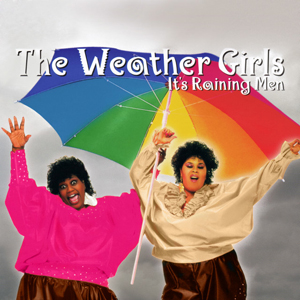 Wash: Because of the song “It’s Raining Men.” People thought it was a new group out called The Weather Girls, so when “It’s Raining Men” came out and people would listen to the song, there was a debate going back and forth about who The Weather Girls were. Some people thought it was a new group. The fans of Two Tons O’ Fun said, “No, that’s not a new group. That’s Martha and Izora (laughs),” so that was the debate that was going on and was kind of funny to us. We signed with a new record label, moved from the West Coast to the East Coast and then the rumor started all over again.
Wash: Because of the song “It’s Raining Men.” People thought it was a new group out called The Weather Girls, so when “It’s Raining Men” came out and people would listen to the song, there was a debate going back and forth about who The Weather Girls were. Some people thought it was a new group. The fans of Two Tons O’ Fun said, “No, that’s not a new group. That’s Martha and Izora (laughs),” so that was the debate that was going on and was kind of funny to us. We signed with a new record label, moved from the West Coast to the East Coast and then the rumor started all over again.
What do you think led “It’s Raining Men” to become such a global anthem?
Wash: I guess maybe the campiness about it. And then the gay community just snatched it up (laughs) and ran away with it. But it’s now a classic and it’s a song that everybody enjoys, from the parents, to the grandparents, to the kids. Everybody gets up on the dance floor when they hear this song and because it’s one of those fun songs.
How did you transition out of the group into becoming a leading session lady, particularly in the house music style?
Wash: It just kind of evolved and producers were calling for me to do some session work. Some had already just decided to use (laughs) my vocals for their projects. But that’s basically kind of how it started, getting calls to work on projects with DJs and stuff.
One of the first ways your vocals were used during that period was with Seduction. What exactly happened?
Wash: There was a girl group that was getting ready to come out called Seduction and the producer, David Cole, asked me to sing on this track and to change my voice around. I said, “okay” because I thought it was gonna be like a demo for them, and it wound up being [the actual song] “(You’re My One And Only) True Love.” That’s how, basically, Seduction got started and they went on to do their own thing.
Though the situation was similar shortly thereafter with Black Box, how do you ultimately feel about your contributions to songs such as “Everybody Everybody” and “Strike It Up?
Wash: That is almost, my God, 35-years-old. That happened so long ago. I’ll just say they play the music still and I’m still standing so…I moved so far past them and changed musical genres.
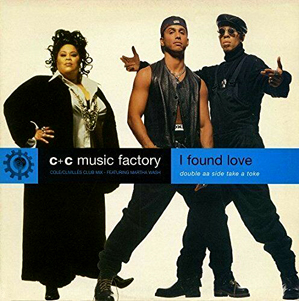 Lastly on that note, what went right and wrong during your association with C+C Music Factory?
Lastly on that note, what went right and wrong during your association with C+C Music Factory?
Wash: Doing “Gonna Make You Sweat, [Everybody Dance Now],” but in the end [after the crediting got settled], it wound up working out and I even worked with them again.
Tell us a bit about the legislation you helped put in motion. You literally redirected the course of music history.
Wash: Well, that’s kinda thanks to my attorney who argued the case in court. Now you have to, if you’re going to put out a video or a music project, anything like that, you are “Artist A” and you have a guest vocalist who is “Artist B.” Then “Artist B” has to be credited just as much as “Artist A, as in “Artist A featuring Artist B,” that kind of thing.
Why do you think there was such a lack of crediting back in those days?
Wash: Good question (laughs). I can only speculate cause I don’t know. I think record companies thought that they could get away with things like that. That would be my only speculation, that they could get away with it and they did for a long time.
What’s a moment you’re most proud of since going solo?
Wash: I’d probably say, as far as the music is concerned, maybe one of my favorite songs is “Carry On.” That song has touched a lot of people over the decades and I remember one time in particular I was doing an autograph session in a record store in New York. Funny enough, the artist Meat Loaf, we were going to the same record store, so we rode in the limousine together. Well, when I got to the store and I had finished doing the autograph session, and sang a couple of songs, as I was getting ready to leave and go out the door, there was this lady, kind of young, she could’ve been in her late 20s, maybe early 30s, and she had a little boy with her. He looked like maybe he was six-years-old and she stopped me. She said she just wanted to thank me for the song “Carry On” and she told me that her son, his name was Joey, was HIV positive, and she said that song really helped her in dealing with her son’s situation. It just really lifted her up with what she was going through.
Over the years, people come to me and tell me the songs that they enjoyed hearing, and songs in particular that have helped them over rough periods that they were going through and helped uplift their spirits. When they feel down, they’ll put on a particular song and just listen to it, or dance to it, or whatever to make them feel better, so that’s very gratifying to know that the music that you put out really helps them in their lives.
 Who are some of your duet partners that have stood out for you?
Who are some of your duet partners that have stood out for you?
Wash: Funny enough, I haven’t done a whole lot of duets with other people, but I will say singing with Luther Vandross was particularly wonderful for me. I’d known Luther from doing jingles. Sometimes we would be working on the same jingle and we’d meet there with other session singers. This kind of came out of the blue. He left a message on my phone and said to call him, and I’m asking my manager, “Why is he calling me?” I mean we knew each other, but we weren’t close, close.
So when I called him back, he said, “I want you to do a duet with me” and I said, “okay!” I thought that was cool. He said, “Do you know the song ‘I (Who Have Nothing)’ [by Ben E. King]?” I said, “yeah.” That had always been one of my favorite songs that I listened to growing up as a teenager, so I was very familiar with it. He said he was doing, “I (Who Have Nothing),” so I flew out to Los Angeles, and we went in the studio and recorded the song. It was just wonderful to see how he worked and how we came together musically, vocally. When people heard that I had done a song with Luther Vandross, people were trying to figure out how it was going to sound. People really do love that song because it’s almost like a marriage of give and take vocally, and then coming together as one, so that was a highlight for me.
How did you come up with the idea for your First Ladies Of Disco group?
Wash: First Ladies of Disco came about by a book called “First Ladies Of Disco,” written by author James Arena. That was his first book in a collection. I think there’s six books of people in the music business, from disco artists, to DJs, to producers, to artists over in Europe. It’s vast, and it’s really great for people who are interested in the different music genres, and the artists, but mostly dance and disco. That was his first book and naturally I was in it, so my manager and I asked him if it would be alright if we started a group called First Ladies Of Disco, and he was fine with it.
It’s been in existence now ten years. We started off with myself, Linda Clifford and Evelyn “Champagne” King, and it’s kind of a rotational show, [now with Norma Jean Wright, formerly of Chic]. We’ve had Janice Marie Johnson [from A Taste Of Honey], Thea Austin from Snap!, Jeanie Tracy, Anita Ward and another good friend of mine, Charlene Moore. It’s just women that have been in the business this long, but don’t necessarily get the publicity that they deserve. [They are] still working, still recording, but you don’t necessarily hear them on the radio anymore.
Your longevity and versatility is incredible. What are your thoughts on being able to transcend genres and generations?
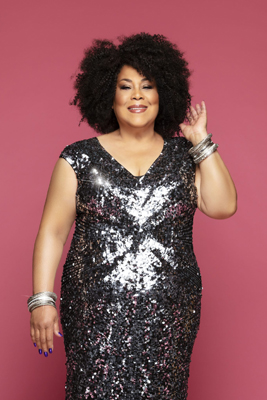 Wash: See the thing is, as they say, I survived disco, and into the house, and all that stuff, but I have always maintained as an artist, I never wanted to be put in one particular box. I will fight you about that because music is too vast and exploratory. [There are] so many different kinds of music and subgenres that I never wanted to be just labeled as one particular artist that sang one particular kind of music. I like different kinds of music and I have my own record label, so I can record whatever I want whenever I want. So with this music that Sami sent to me, I said, “okay, let’s explore this and see how well that I can do this” because sometimes you have to step out of your comfort zone and try new things.
Wash: See the thing is, as they say, I survived disco, and into the house, and all that stuff, but I have always maintained as an artist, I never wanted to be put in one particular box. I will fight you about that because music is too vast and exploratory. [There are] so many different kinds of music and subgenres that I never wanted to be just labeled as one particular artist that sang one particular kind of music. I like different kinds of music and I have my own record label, so I can record whatever I want whenever I want. So with this music that Sami sent to me, I said, “okay, let’s explore this and see how well that I can do this” because sometimes you have to step out of your comfort zone and try new things.
Now I’ve had feedback on this album. A couple of people have said they didn’t care for the music. I wrote them back and I said, “okay, that’s fine. I understand it, but keep listening and then listen some more.” They turned around and wrote me, and said, “you know what, I kinda like it now,” so sometimes you have to grab your audience and have them come along with you. Everybody knows me from the dance music. That’s fine and that’s what they want me to sing for the rest of my life, but sorry, I’m not gonna do it. I want to be able to sing and record whatever I want to sing and record, you know? If you want to follow me down the journey, come on, let’s go. But I would suggest to you to keep listening cause you may find out that you may like one or two of the songs on there. Sometimes it’s kind of a head swivel for some people (laughs). “She’s doing what?” “What is she singing?” “Oh no, when is the dance mix coming out?” Well, it’s not coming out. This is what I’m presenting to you.
How do you feel like the music industry in general has responded so many of the roads you’ve helped pave?
Wash: Lord, this industry is…I don’t know (laughs). I really don’t know. I will say, well, it used to be, I still think talent is way down the line, you know? It’s still the optics and things, although it’s gotten better as far as sizing is concerned. I mean there are talented people out there, but is it more of the optics than the talent per se? And I’m just speaking from a singer’s standpoint. I’ve never been a dancer (laughs), and I’m not gonna say I have two left feet, but I concentrate more on singing than I do dancing (laughs) [to] make sure I can at least remember my words. I think people want you to be a triple threat and there are a lot of people out there that can do that. I’m not necessarily one of them and I think there are great artists out there that aren’t necessarily a triple threat, but they’ve been able to maintain through the years. But as far as this business is concerned, all I can say is “I don’t know.” I just kind of try [to] keep doing what I’m doing until I guess I can’t do it anymore.
Martha Wash performs at the City Winery on Friday, May 2. For additional details, visit MarthaWash.com and CityWinery.com/Chicago.




